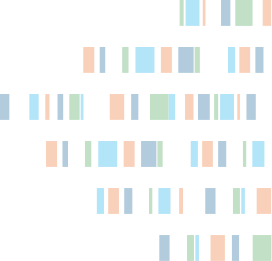The karyotype represents the basic genetic make-up of a eukaryotic species. Comparative cytogenetic analysis of relative species based on individually identified chromosomes has been conducted only in few plant groups, not yet in woody plants. We developed a complete set of 19 chromosome painting probes based on the reference genome of the model woody plant Populus trichocarpa. Using sequential fluorescence in situ hybridization (FISH), we were able to identify all poplar chromosomes in the same metaphase cells, which led to the development of poplar karyotypes based on individually identified chromosomes. We demonstrate that five Populus species, which belong to five different sections within Populus, have maintained a remarkably conserved karyotype. No inter-chromosomal structural rearrangements were observed on any of the 19 chromosomes among the five species. Thus, the chromosomal synteny in Populus has been remarkably maintained after nearly 14 million years of divergence. We propose that the karyotypes of woody species are more stable than herbaceous plants since it may take a longer period of time for woody plants to fix chromosome number or structural variants in natural populations.

Home » An extraordinarily stable karyotype of the woody Populus species revealed by chromosome painting
Publications
An extraordinarily stable karyotype of the woody Populus species revealed by chromosome painting
Daicel Arbor Biosciences
5840 Interface Dr. Suite 101,
Ann Arbor, MI 48103
1.734.998.0751Ann Arbor, MI 48103
©2025 Biodiscovery LLC
(d/b/a Daicel Arbor Biosciences)
All Rights Reserved.
(d/b/a Daicel Arbor Biosciences)
All Rights Reserved.

 Bluesky
Bluesky